
Lester Munson
Non-resident fellow, United States Studies Centre, University of Sydney
Lester Munson is a non-resident fellow at the United States Studies Centre at the University of Sydney and a principal in the international practice at BGR Group, a leading government relations firm in Washington, D.C., where he consults with foreign governments, corporations, and advocacy groups. Lester leads BGR’s foreign assistance practice, which provides advisory and government relations services to companies, advocacy groups, and nongovernmental organizations in the international aid policy area. Before joining the private sector, he was most recently staff director of the Senate Foreign Relations Committee. Lester also served as chief of staff to U.S. senator and representative Mark Kirk (R-IL). During the George W. Bush administration, Lester served as deputy assistant administrator at the U.S. Agency for International Development, where he focused on legislative affairs as well as global health issues. He also serves as adjunct faculty at Johns Hopkins University and speaks regularly on the foreign policy role of Congress and on U.S. foreign assistance issues. He is a cochair of the executive committee of the Modernizing Foreign Assistance Network, a senior fellow at George Mason University's National Security Institute, and a commentator on several news channels. In addition, Lester is the host of the weekly podcast Fault Lines, a bipartisan discussion of foreign policy issues associated with the National Security Institute. Lester is a graduate of the College of the University of Chicago and holds a master’s degree from St. John’s College in Annapolis.
Less ![]()
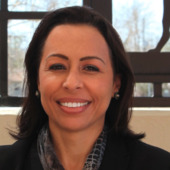
Leticia Fanucchi
Clinical Assistant Professor of Veterinary Clinical Sciences, Oklahoma State University
Less ![]()

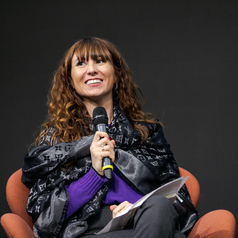
Letizia Gaja Pinoja
PhD Candidate, Graduate Institute – Institut de hautes études internationales et du développement (IHEID)
Doctorante en Histoire et Politique Internationale à le Geneva Graduate Institute,Letizia Gaja Pinoja effectue des recherches sur l'histoire coloniale et post-coloniale suisse
Less ![]()

Letodi Luki Mathulwe
Research entomologist, Department of Conservation Ecology and Entomology, Stellenbosch University
I am a research entomologist, and my research focus is on the biological control of economically important insect pests in agroecosystems using entomopathogenic fungi and nematodes. I have three degrees from Stellenbosch University: BSc in conservation ecology (2016), MSc in entomology (2019) and PhD in entomology (2021). I also did postdoctoral studies in agriculture (entomology) at Stellenbosch University in 2022.
Less ![]()

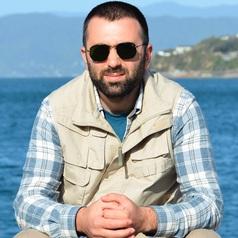
Levan Tielidze
Research Fellow in glacial geomorphology, Monash University
Levan Tielidze is a researcher at Monash University who studies modern and past glaciers in relation to climate change in different regions of the world.
Less ![]()
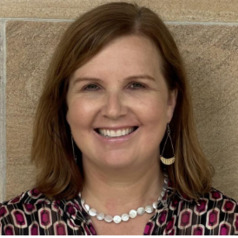
Levon Ellen Blue
Senior Lecturer, The University of Queensland
Dr Levon Blue is employed as a Senior Lecturer in the Office of the Deputy-Vice-Chancellor (Indigenous Engagement) at The University of Queensland. Her PhD focused on the financial literacy education practices in an Aboriginal community in Canada (that she is a member of) as a case study. Levon’s research focuses on financial literacy education practices and pathways to success in higher education with Indigenous peoples in Australia and Canada.
Less ![]()
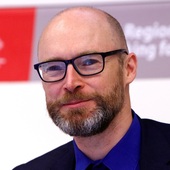
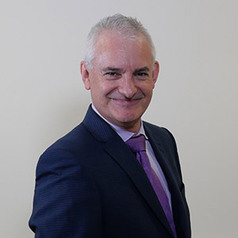
Lewis Endlar
Programme Director MSc Project Management and Lecturer in Business, Keele Business School, Keele University
I am a Lecturer in Business and Management at Keele Business School. I deliver on a range of undergraduate and postgraduate modules on our business degrees and MBA and Executive programmes as well as other postgraduate apprenticeship courses within the University.
Prior to joining the Keele, I was a Senior Lecturer in Business Technology in the Department of Operations, Technology, Events and Hospitality Management at the Manchester Metropolitan University Business School where I led an international MSc in Project Management accredited by the Association for Project Management.
I also held the position of Director of Short Courses and Commercial Activities liaising with many SME’s and larger organisations in the UK and internationally including the top 4 consultancy companies worldwide.
Since the early 90’s I have led numerous workshops, courses and programmes to include information systems, project management, business strategy, e-marketing and management, climate change and sustainability, business process re-engineering and so on.
I have a particular interest in emerging technologies in the re-design of business processes, systems theories and methodologies, people and organisations, motivation theory and teams, leadership, managing change, knowledge management and applied learning techniques, including blended learning.
I was a project manager in the pharmaceutical sector for a period of secondment, managing a major migration project across borders and significantly improving the processes within the Department and enhancing the skills and knowledge of the workforce through 70+ training courses.
Between 2006-2008 I was a guest presenter on a live weekly television broadcast reviewing emerging technologies and innovation themes.
I have advised several organisations on their business strategies and adoption of information systems and technology.
I have been a contributing member of the British Computer Society and am an affiliate member of the Chartered Management Institute.
Less ![]()
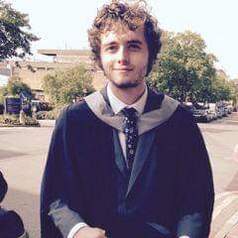
Lewis Eves
Teaching Associate in Politics and International Relations, University of Sheffield
My research focuses on the intersection of history and security, with a particular interest in East Asia and Sino-Japanese relations. I have published several articles on this topic, as well as broader discussions on International Relations and International Security Studies.
I was awarded my PhD in Politics by Sheffield Hallam University in 2023. My thesis explored how competing historical narratives of the Second Sino-Japanese War impact the contemporary bilateral relationship between China and Japan, particularly as pertains to their territorial dispute in the East China Sea. Previously, I studied my BA in International Relations and History and an MA in International Security Studies at the University of Leicester.
I currently hold teaching positions at both Sheffield Hallam University as an Associate Lecturer and the University of Sheffield as a Teaching Associate. I have taught on introductory International Relations, US political history, political violence, global security challenges and academic writing skills.
Less ![]()
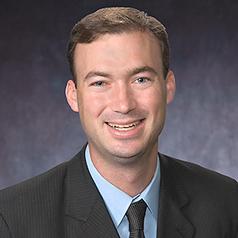
Lewis Faulk
Associate Professor of Public Administration and Policy, American University
Professor Faulk's research focuses on nonprofit management, nonprofit finance, and the intersection of nonprofit organizations and public policy. He has a Ph.D. in Public Policy with a concentration in Nonprofit and Public Management from the joint Ph.D. program in Public Policy at Georgia State University and the Georgia Institute of Technology. Prof. Faulk is the current Editor in Chief of Nonprofit Management and Leadership. His research has been published in the Journal of Policy Analysis and Management, Journal of Public Administration Research and Theory, Public Administration Review, Public Management Review, Journal of Behavioral Public Administration, International Public Management Journal, Public Performance & Management Review, Nonprofit and Voluntary Sector Quarterly, Nonprofit Management and Leadership, VOLUNTAS: International Journal of Voluntary and Nonprofit Organizations, Foundation Review, and Nonprofit Policy Forum.
Less ![]()

Lewis Fitz-Gerald
Actor, writer and director Dr Lewis Fitz-Gerald lectures in Screen Studies at the University of New England.
Less ![]()

Lewis Ingram
Lecturer in Physiotherapy, University of South Australia
I am a physiotherapist, strength & conditioning coach, lecturer, and a competitive distance runner. Despite publishing research pertaining to the cervical spine, my true passion lies within the assessment and treatment of overuse injuries in endurance athletes. As a distance runner, I am ideally positioned to understand both the physical demands and competitive mindset amongst my fellow runners, of all shapes and sizes. Through combining my current research in human movement with my passion for running, I am able to offer a greater insight into identifying and fixing the underlying cause(s) of injury, rather than simply treating the symptoms. This is the essence of successfully managing running-related injuries.
Less ![]()

Lewis Kellett
Doctoral Researcher in Cinema, Sheffield Hallam University
My doctoral research focuses on the representation and construction of youth in 21st-century British social realist cinema. Many realist films in the last twenty years have youth as a significant theme in their narrative. Through textual analysis and selected case studies, such as Sweet Sixteen (2002), This is England (2006), Fish Tank (2009), My Selfish Giant (2013) and more recently Rocks (2020), I analyse concepts of identity, class, gender and race. I consider my study of youth in British social realist cinema an important opening to wider issues about societal understanding of young people and the ‘specific moment’ in their life trajectory. The films bring up through the characters’ voice these ‘specific moments’ and challenge preconceived ideas about youth.
I have a long-standing personal interest in this topic that combines my previous studies, my passion for British cinema, and my experience of working with young people across different sectors of education. Social Realism is a genre that is known for its ability to frame and position its characters in the cultural and political context from which they stem. This research will add to the literature on how youth is constructed and represented in 21st century British social realism and provide an insight into how films in the British realism mode of filmmaking produce alternative articulations of youth.
Less ![]()
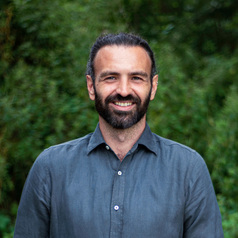
Lewis King
Lecturer in climate policy and green economics, Universitat Autònoma de Barcelona
Lewis is a postdoctoral research fellow at the Autonomous University of Barcelona, working at the intersection of climate policy and ecological economics. Through an interdisciplinary approach, his research unravels the complex challenges societies face in striving towards effective climate change mitigation.
His work critically evaluates the commitments within the Paris Agreement and strategies proposed for fulfilling them, while advocating for alternative solutions to enhance current global sustainability efforts. Lewis is particularly interested in exploring and addressing the underlying societal factors that hinder successful climate action.
Less ![]()
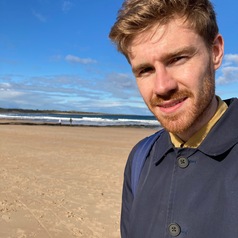
Lewis Ryder
Lecturer in Modern History, University of Manchester
I'm a social and cultural historian of Modern Britain with specific focus on the mid 19th to early 20th century. My main research interests include the relationship between British imperialism and collecting, museums and exhibitions.
Research interests:
Modern British History, 1920s, Social and Cultural History, Museums, Collections/Collecting, British Imperialism, Sino-British History, Eccentrics and Tricksters, Individual Lives, Art Markets and lots more.
Less ![]()


Lewis Jr. Neil
Associate Professor of Communication and Social Behavior, Cornell University
Dr. Neil Lewis, Jr. is a behavioral scientist who studies the motivational, behavioral, and equity implications of social interventions and policies. Lewis’s research examines how people’s social contexts and identities influence how they make sense of the world around them, and the implications of those meaning-making processes for their motivation to pursue a variety of goals in life. He is interested in the consequences of these processes not only for individuals, but also for the communities, organizations, and societies those individuals are embedded in; he is particularly interested in using insights from research findings to improve educational, health, and environmental outcomes for individuals and societies.
Less ![]()

Leyla Tavernaro-Haidarian
PhD Candidate of Journalism, Film & Television, University of Johannesburg
Leyla Tavernaro Haidarian is a media professional and ubuntu scholar. She has produced and presented for a variety of media outlets including Warner Brothers/KTLA5, the Austrian Broadcasting Corporation, StarSat, MNet and the SABC. She has also appeared on HBO’s Generation Kill and played alongside Paul Walker in Vehicle 19. Leyla is a published author, co-founder of a leading educational enterprise and regularly speaks at international fora such as TEDx, The Unique Speaker Bureau and The European Baha'i Business Forum. She is currently a PhD candidate at the University of Johannesburg and creates TV shows for StarSat and The Africa Channel.
Less ![]()

Li Tang
Doctoral researLi Tang is a doctoral researcher at the Max Planck Institute. Her current work investigates high-altitude adaptations of the dietary economy on the prehistoric Tibetan Plateau by the application of proteomics, isotope, and archaeobotany.
cher, Max Planck Institute for the Science of Human History
Less ![]()

Li Li Li Li
Assistant Professor of Biomedical Sciences, UMass Chan Medical School
Li Li grew up in Shanghai, China and received his B. Sc. degree in 2007 from Fudan University, conducting work in molecular dynamics simulations with Dr. Qiang Huang.
He received his Ph.D. in 2012, working with Professor Susan Martinis and Zaida Luthey-Schulten at University of Illinois at Urbana-Champaign. His doctoral work focused on aminoacyl-tRNA synthetases (aaRSs), a group of enzymes that establish the genetic code in all living organisms. He then moved to Professor Jack Szostak’s lab at Massachusetts General Hospital for postdoctoral studies, where he developed an efficient chemical method to copy RNA sequences and explored the possibility of using in vitro selection to discover RNA sequences that can control translation in eukaryotic cells.
In 2020 Li started his independent group at the RNA Therapeutics Institute at UMass Chan Medical School. His goal is to make new discoveries of RNA biology by combining the power of evolution and chemistry with classical biochemical methods.
Less ![]()

Li Li (李黎) Li Li (李黎)
Professor of Civil and Environmental Engineering, Penn State
My group works at the interface of hydrology, biogeochemistry, and environmental engineering. In particular, we are interested in understanding reactive transport processes where flow, transport, and biogeochemical reactions interact in natural systems. These processes dictate water quality and determine how natural systems respond to changing climate and human perturbations. We are particularly interested in understanding general principles that have prediction power across diverse climate and earth system conditions. We have worked on multiple topics at the nexus of water, environment, and energy, including, for example, water and biogeochemical cycling, contaminant reactive transport and bioremediation, and geological carbon sequestration, from as small as pore scale to as large as river basins.
Less ![]()

Li Yang HSU
Vice Dean of Global Health, National University of Singapore
I am also an infectious diseases physician by training, graduating from the National University of Singapore School of Medicine in 1998.
Less ![]()

Li-Jun Ma
Professor of Biochemistry and Molecular Biology, UMass Amherst
A dynamic genome with high plasticity contributes directly to the success of the organism to adapt to changing environments. My lab studies genetic mechanisms that sustain structural and functional flexibility while maintaining the integrity of the organism using the model fungal system Fusarium oxysporum.
Less ![]()

Li-Yin Liu
Assistant Professor in the Department of Political Science, University of Dayton
Li-Yin Liu received her B.A. in Public Management and Policy and MPA from Tunghai University in Taiwan. She then received her Ph.D. degree in Political Science from Northern Illinois University, where her first field was Public Administration with specialization in public policy and nonprofit management.
Liu’s research interests are centered around science-intensive public policies, including environmental sustainability and COVID-19 policies. Her current research focuses on environmental nonprofit organizations’ influence in policy-making and citizen engagement in environmental policy implementation. In light of the COVID-19 public health crisis, she also participates in several collaborative research teams, examining the institutional determinants of COVID-19 policy configurations and the Taiwanese government's comprehensive response to COVID-19.
In addition to her primary research interests, Liu is also committed to advancing gender equity through her collaborative projects. She has been recognized for this focus and was selected as a Gender Equity Research Fellow for the 2023-24 academic year at the University of Dayton.
Liu’s teaching interests are in advanced/introductory public administration theory, public policy, nonprofit management, research methods, program evaluation and environmental governance and policy.
Prior to joining the University of Dayton, Liu was a Visiting Assistant Professor in the Department of Public Administration at Northern Illinois University, and she worked for the Legislative Yuan (Congress) and non-governmental organizations in Taiwan before moving to the United States.
Less ![]()

Lia Nower
Professor and Director, Center for Gambling Studies, Rutgers University
Lia Nower, J.D., Ph.D., is a Professor and Director of the Center for Gambling Studies at Rutgers University, School of Social Work. A clinician and attorney who specializes in gambling disorder and behavioral addictions, she also serves as director of the Addiction Counselor Training Certificate Program, a member of the leadership team of the Rutgers Addiction Research Center (RARC) and a research affiliate with the Sydney University Gambling Treatment Unit in the Brain and Mind Centre. Dr. Nower's research focuses on online gambling and video gaming, sports wagering, psychometric measurement, the etiology and treatment of gambling and gaming disorder, and gambling-related policy issues. She currently serves as Senior Editor for Addiction and Regional Assistant Editor for International Gambling Studies. Dr. Nower is a former member of the Board of Directors of the National Council on Problem Gambling (NCPG) in Washington D.C., where she also chairs the research committee and serves on the responsible gaming committee. She received the 2019 Research Award and the 2022 Lifetime Research Award from the NCPG. Dr. Nower was also the 2022 recipient of the Rutgers Board of Trustees Excellence in Research Award. She has co-authored several policy initiatives, including a model for self-exclusion programs and an industry framework for informed-choice and responsible gambling. She co-edited the book, The Wiley-Blackwell Handbook of Disordered Gambling (2013).
Less ![]()
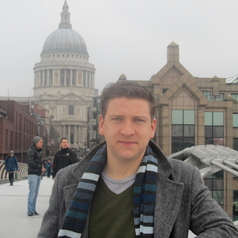
Liam Burke
Dr. Liam Burke is a senior media studies lecturer at Swinburne University of Technology, where he also serves as the Course Director of Media. His research interests include Comic Books, Cinema, Adaptation Studies, and Irish Culture. His most recent book, The Comic Book Film Adaptation: Exploring Modern Hollywood's Leading Genre, was published in April 2015. Past publications include articles in the journals Participations, Adaptation, and Estudios Irlandeses, as well as the book Superhero Movies and the edited collection Fan Phenomena Batman. His current research project, “New Media, Aging, and Migration”, considers how older Irish people in Melbourne make use of social media. Prior to earning a PhD in film studies from the National University of Ireland, Galway, Liam worked for a number of arts organisations and festivals, including the Irish Film & Television Academy. He was the lead researcher and programmer of the inaugural John Ford Ireland Film Symposium. Liam is a regular media commentator in Ireland and Australia.
Less ![]()

Liam Cassidy
PhD Candidate, The University of Melbourne
Hello!
I am a PhD candidate at the University of Melbourne. I am most interested in projections of climate and climate extremes after net zero.
Less ![]()

Liam Courtney-Davies
Postdoctoral Research Associate in Geological Sciences, University of Colorado Boulder
Liam Courtney-Davies is a Postdoctoral Research Associate in Geological Sciences at the University of Colorado Boulder. He completed a MSci degree in Earth Sciences at Royal Holloway, University of London, in 2015 and Ph.D. in geochronology and economic geology at the University of Adelaide, South Australia in 2020. During a postdoctoral position at Curtin University, Western Australia, his team developed understanding of how giant iron ore deposits formed across the continent using state-of-the-art nanoscale and radioisotopic techniques. His current research focuses on geochronology method development and Snowball Earth research.
Less ![]()

Liam Grealy
Senior Research Fellow, Menzies School of Health Research
Liam Grealy is Senior Research Fellow at Menzies School of Health Research and Research Fellow at the University of Sydney.
Less ![]()
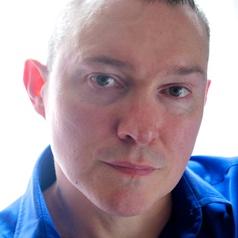
Liam Harte
Professor of Irish Literature, University of Manchester
Liam Harte is Professor of Irish Literature at the University of Manchester. His research interests span the fields of modern Irish fiction and autobiography, as well as the literature and culture of the Irish diaspora. His publications include Reading the Contemporary Irish Novel: 1987-2007 (Wiley Blackwell, 2014), A History of Irish Autobiography (Cambridge University Press, 2018) and The Oxford Handbook of Modern Irish Fiction (Oxford University Press, 2020), the paperback edition of which appeared in 2023. He was the principal investigator on a three-year oral history project entitled Conflict, Memory and Migration: Northern Irish Migrants and the Troubles in Great Britain, which ran from 2019 to 2022 and was funded by the UK Arts and Humanities Research Council (AHRC).
Less ![]()

Liam Keenan
Assistant Professor in Economic Geography, University of Nottingham
Liam completed his PhD in 2017 on ‘Financialization, the brewing industry, and the changing role of the pub in Britain and Germany’. His research interests include financialization, political economy, and local and regional development. Empirical focus has so far centred on the brewing and pub industries, with emergent interests in financial centres, FinTech and sustainability.
Less ![]()
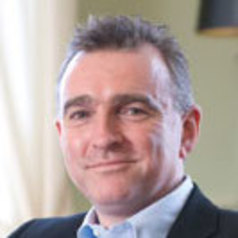
Liam Kennedy
Professor Liam Kennedy is Director of the Clinton Institute for American Studies at University College Dublin. He has diverse research interests and teaching experiences, spanning the fields of American cultural and media studies, globalisation and Irish-US relations.
He is the author of Susan Sontag: Mind as Passion (1995) Race and Urban Space in American Culture (2000) and Afterimages: Photography and US Foreign Policy (2016). He is co-editor of Urban Space and Representation (1999) City Sites: An Electronic Book (2000), The Wire: Race, Class and Genre (2013) and The Violence of the Image (2014), and editor of Remaking Birmingham: The Visual Culture of Urban Regeneration (2004).
Professor Kennedy's work is interdisciplinary, blending cultural and political modes of scholarly analysis, and represents American Studies as a valuable framework to study both American domestic and international affairs.
He is currently researching a monograph on globalization and American culture, and preparing two edited books - on neoliberalism and American literature and on diaspora and diplomacy.
Less ![]()

Liam Lachs
PhD Candidate in Climate Change Ecology and Evolution, Newcastle University
Liam Lachs is an ecologist researching the impact of climate change on coral reefs, mass coral bleaching and climate adaptation. His work spans the interface of evolutionary biology, climate science, demography, and coral reef ecology.
Throughout the last decade, this has included oceanographic analyses of deep-sea Irish coral ecosystems, isotopic assessments of sewage-derived impacts on coral reefs, manipulative field and lab experiments to quantify coral heat tolerance, and climate impact modelling. He has received various grants and awards to pursue his work on coral reef ecosystems, and has spent time bridging the gap between science and policy as an ambassador to the European Marine Board.
Less ![]()
- Market Data























